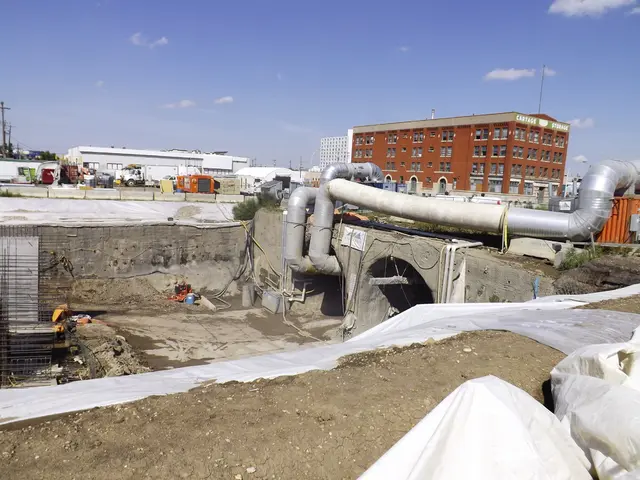"Khawaja Asif announces open invitation for other countries to join the Pakistan-Saudi defense agreement, with the stipulation that the doors remain open."
In a significant move that reflects the growing strategic partnership between the two countries, Pakistan and Saudi Arabia have formalized a mutual defense agreement on September 17, 2022. The pact was signed during Prime Minister Shehbaz Sharif's state visit to Riyadh at Al-Yamamah Palace, where he was received by Crown Prince and Prime Minister Mohammed bin Salman.
The Pakistan-Saudi Arabia Strategic Mutual Defence Agreement has been hailed as a 'historic and unprecedented development' that elevates bilateral ties into a formal security commitment. The agreement pledges that any aggression against one country will be considered aggression against both Pakistan and Saudi Arabia. This binding clause sets the accord apart from previous defense pacts the Islamic countries have joined.
The timing of the agreement, days after Israel launched a strike against Qatar, has led analysts to link it to recent regional turbulence, including the Doha summit and heightened concerns about sovereignty and unilateral aggression. Experts note that the agreement underscores Saudi Arabia's trust in Pakistan as its most reliable partner at a moment of escalating threats.
Defence Minister Khawaja Asif has stated that it is premature to discuss other countries joining the Pakistan-Saudi Arabia security pact, but the door has not been closed. Meanwhile, Federal Information Minister Atta Tarar believes that the agreement reflects the success of Pakistan's recent foreign policy, adding that for the past one and a half years, Pakistan's foreign policy has been progressing successfully.
So far, only Saudi Arabia and Pakistan have officially established the security agreement; however, there are indications and suggestions that this military partnership may be expanded to include other Muslim countries in the Middle East to strengthen collective security. Maulana Fazlur Rehman, the JUI-F Chief, has welcomed the Pak-Saudi agreement and stated that both Saudi Arabia and Pakistan have the capacity to lead the Islamic world. He believes that moving towards an Islamic bloc is the first step and that they will support it instead of discouraging it.
The agreement strengthens Pakistan-Saudi relations and carries wider significance for South Asia and the Islamic world. In response to an attack on either Pakistan or Saudi Arabia, the two nations will respond jointly. Maulana Fazlur Rehman, during a rally in Karachi, stated that when the rights of Muslims in Palestine, Kashmir, and Burma were discussed, he believed that Saudi Arabia and Pakistan had the capacity to lead the Islamic world.
The pact positions Pakistan as the most capable Muslim power to safeguard regional stability. The agreement is a testament to the growing strategic partnership between the two countries and a step towards a more secure and stable region.
Read also:
- United States tariffs pose a threat to India, necessitating the recruitment of adept negotiators or strategists, similar to those who had influenced Trump's decisions.
- Weekly happenings in the German Federal Parliament (Bundestag)
- Southwest region's most popular posts, accompanied by an inquiry:
- Discussion between Putin and Trump in Alaska could potentially overshadow Ukraine's concerns







